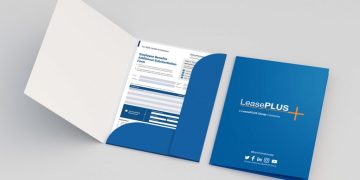Debt is a common problem faced by millions of Americans every year. According to the Federal Reserve, nearly half of American households (46%) had at least $1,000 worth of consumer debt in 2018, and the average household owes around $15,400 in total, with credit cards being the largest source of debt.
Knowing how to manage and control your finances can be a real challenge, and we have put together all you need to know to control your finances and get back on track. Whether you are looking for Personal Loans in Laredo Texas, or simply need advice to get your head above water, here are the top five ways to control your finances.
1. Budgeting
This may seem like an obvious one, but it’s something that many people struggle with. You should set aside money each month into a separate account, and use this as a budget. It will help you to see where your money goes, and what you spend it on. If you don’t stick to your budget, then you won’t be able to keep up with your payments, which could lead to further problems down the line.
Start by writing down everything that you spend money on, from groceries to bills, and anything else that comes to mind. Then, add up the totals for each category. This will give you a good idea of how much you spend per week, and if there are any areas that you can cut back on. Once you have done this, you can start setting yourself a monthly budget. Make sure that you stick to it, and don’t go over your limit.
2. Pay Off Credit Cards
The next step after setting up a budget is paying off your settle credit card debt. Many people find that they do not pay their bills on time, and end up getting charged interest fees. By paying off these debts, you will be saving yourself hundreds of dollars per year.
There are two main options to help you pay off your credit card debt: start with the smallest amounts or start with the higher amounts. Both options have their pros and cons, so you should choose whichever suits you best.
For example, if you want to save more money, then starting with a smaller amount will allow you to make bigger savings. However, if you want to pay off your debt faster, then starting with the larger amount will mean that you will make less progress towards your goal.
3. Pay Off Any Loans or Other Debts
If you have any other debts, such as student loan repayments or car finance, then you should also consider paying them off. The sooner you pay off these debts, the better. There are some lenders who offer lower rates when you pay off your debts early, so it makes sense to try and get rid of them as soon as possible.
3. Save Money
You should always look for ways to save money. Saving money doesn’t necessarily mean that you have to sacrifice spending money on things that you enjoy. Instead, you should look for ways to reduce your expenses. For example, you might decide to stop buying coffee at work, or you could even ask your boss if you can take home some extra cash.
You could also look for cheaper alternatives to certain items that you buy regularly. For example, instead of buying expensive toiletries, you could opt for cheaper brands. You could also look for coupons online, or in magazines. These can often save you a lot of money, and you can use them to stock up on products that you need.
4. Set Up A Savings Account
A savings account is another way to save money. You can either open a regular savings account, or you could open a high-interest savings account. Either option will benefit you in the long run, so you should definitely think about opening one.
A savings account is great because you can deposit money into it whenever you feel like it. You don’t have to wait until every month to put money into it, and you can withdraw the money whenever you need it – though it is best to try and avoid touching this balance unless you have a genuine emergency or need.
If you are looking for an easy way to earn a bit of extra money, then you may want to consider opening a high-interest savings account. These typically require a minimum balance, but once you reach that level, you will receive a percentage return on top of what you originally deposited. This means that you will be able to build up a significant amount of money over time.
5. Make Sure That Your Bills Are Paid On Time
One of the most common reasons why people end up with debt is because they fail to pay their bills on time. If you find that you are having trouble managing your finances, then you should start by making sure that you are paying your bills on time.
This will not only help you to keep track of how much you owe, but it will also give you peace of mind knowing that you won’t miss any payments.
Some of the easiest ways to ensure that your bills are paid on time include automating what you can, such as setting up automatic bill payment through your bank – this takes the stress out of the situation, as you do not even have to think about your bills, or take time to sit down and make payment.
You could also set up reminders on your phone to remind you when it’s due; over time, this will become a habit, and you will automatically pay your bills as soon as they are due, allowing you to be more organized, and granting you greater control over your finances.
6. Understand Where Your Money Goes
One element that many of us really struggle with is truly understanding where our money goes each month, and why we are often left short, or with nothing at all. To get a better understanding of where your money is going, you might want to use a personal finance software program.
These programs allow you to monitor your spending in real time so that you can easily identify areas where you are wasting money. They can also provide you with tips and suggestions to help you save money, which will ultimately lead to you saving more.
As an alternative, you can simply use a pen and paper, or your phone, to write down every single item and purchase that you make over a period of time, such as a week or even a month. Be ruthless and meticulous here; if you don’t know whether something is necessary, then it probably isn’t!
Once you have written everything down, you can then go back and analyze your purchases. You may be surprised at just how much you actually spend on things that you didn’t realize were unnecessary, or had simply gotten into the habit of purchasing without considering the true cost. This is a fast, easy way to highlight areas of overspending, and take immediate action.
7. Check That You Are Getting The Right Deals
If you’re looking for ways to cut costs, one of the best places to look is in terms of your current deals when it comes to essentials such as insurance, utility bills, and even bank accounts.
It is possible to find great deals online, and there are plenty of websites that offer these types of services at very low prices. For example, you could sign up for a new energy provider, and see if they can beat your current deal – If you are in Texas, use a comparison site such as power to choose dallas to ensure that you are getting the most competitive rate, and don’t be afraid to shop around.
Alternatively, you could switch your mobile phone service, or your broadband connection, and see if you can get a better deal than you currently have – while the savings may seem small initially, over time, it can add up to significant amounts, and you will see a real difference.
Financial planning for physicians involves creating a comprehensive plan for managing income, expenses, savings, investments, debt repayment, and long-term financial goals.
Use A Credit Card Wisely
It’s easy to fall into the trap of using credit cards as a way to spend money when we’re short of cash, however, this isn’t always the best option. In fact, many experts recommend avoiding using credit cards altogether, – particularly if you are trying to budget – as they often charge higher interest rates than traditional bank accounts.
If you do choose to use one, make sure that you pay off the full amount at the end of every month, rather than carrying balances forward. This will ensure that you don’t incur any additional fees, and it will also allow you to avoid having to pay back any interest charges.
If you do find yourself struggling to meet your monthly repayments, then you should contact your lender immediately, and ask for a repayment extension. You may even be eligible for a lower rate of interest, depending on how much time has passed since you last paid back the loan, and this can help you get back on track with your finances more easily.
Final Thoughts
It is important to remember that there is no quick fix to financial problems. It takes hard work and dedication to achieve success. If you follow our top steps above, you should have your finances under control in no time, and get back to enjoying your life.




















